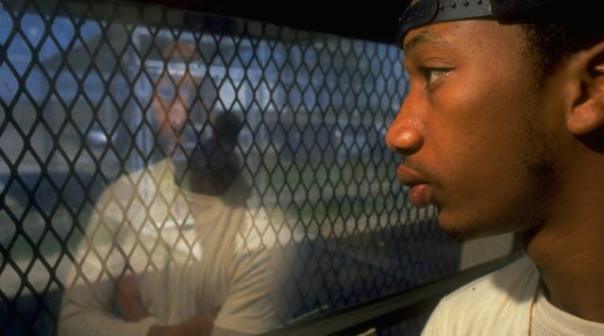Yesterday we wrote about children in prison, and the benefits of moving away from punishment to education, in order to give children a chance.
If you want to read more about the benefits of education over imprisonment go to https://dadisispeaks.wordpress.com/category/culture/prison-industrial-complex/
Repeatedly, research has shown that spending time in prison or jail can have profound effects on a young person’s future. High rates of recidivism mean that many youth, once in the prison system, will stay there for significant portions of their lives. Up to one-third of incarcerated youth return to jail or prison within a few years after release.
Youth who have been incarcerated experience diminished income in comparison with their non-incarcerated peers. In addition, they may suffer earnings losses of between 10 and 30 percent for up to ten years after their release.
Given these negative outcomes, it is especially troubling that there are disproportionate rates of imprisonment among young, already disadvantaged, minority men. According to one estimate, on a typical day approximately one in three young, black, male high school dropouts are in prison or jail.
If you want to read more about this, go to: http://www.childtrends.org/?indicators=young-adults-in-jail-or-prison
Statistics also indicate that there are racial disparities in sentencing juveniles.
African American youths make up approximately 4 percent of the overall juvenile population but comprise 18 percent of youth placed in detention. The racial disparities nearly double at every stage in the system, from arrest to trial to conviction to sentencing.
At the beginning of August, there was a Capitol Hill roundtable on anti-poverty strategies and juvenile justice reform. Roy Austin Jr., an aide to President Barack Obama, was one of the participants at the round-table, and noted that minorities are much more likely to be drawn into the vortex of the justice system than whites: Black males, he said, are six times more likely to be in prison than white males; Latino males, 2 ½ times more likely. And 50 percent of black males will be arrested by the time they are 23 years old.
“Today’s topic is certainly an urgent national crisis at the intersection of poverty and race, especially for black boys, who have a one in three lifetime risk of going to jail, and Latino boys, who have a one in six lifetime risk of going to jail,” said U.S. Rep. Joyce Beatty, an Ohio Democrat serving in her first term in Congress.
“Tens of thousands of children and teens are sucked into the pipeline each year, it’s reported by the Children’s Defense Fund,” she said, referring to the “school-to-prison pipeline” phenomenon used to describe the exaggerated number of children and youth in prison.
If you want to read more about this go to: http://jjie.org/capitol-hill-roundtable-interrupt-the-poverty-to-prison-pipeline/
Do you want to contribute to this discussion? Send us your comments, or become a regular contributor about prison and prison phone related issues! Go to YOUR VOICE!







